第49章 CHAPTER VI HOW WAR CAME TO NEW YORK(2)
The newspapers and magazines that fed the American mind--for books upon this impatient continent had become simply material for the energy of collectors--were instantly a coruscation of war pictures and of headlines that rose like rockets and burst like shells. To the normal high-strung energy of New York streets was added a touch of war-fever. Great crowds assembled, more especially in the dinner hour, in Madison Square about the Farragut monument, to listen to and cheer patriotic speeches, and a veritable epidemic of little flags and buttons swept through these great torrents of swiftly moving young people, who poured into New York of a morning by car and mono-rail and subway and train, to toil, and ebb home again between the hours of five and seven. It was dangerous not to wear a war button. The splendid music-halls of the time sank every topic in patriotism and evolved scenes of wild enthusiasm, strong men wept at the sight of the national banner sustained by the whole strength of the ballet, and special searchlights and illuminations amazed the watching angels. The churches re-echoed the national enthusiasm in graver key and slower measure, and the aerial and naval preparations on the East River were greatly incommoded by the multitude of excursion steamers which thronged, helpfully cheering, about them. The trade in small-arms was enormously stimulated, and many overwrought citizens found an immediate relief for their emotions in letting off fireworks of a more or less heroic, dangerous, and national character in the public streets. Small children's air-balloons of the latest model attached to string became a serious check to the pedestrian in Central Park. And amidst scenes of indescribable emotion the Albany legislature in permanent session, and with a generous suspension of rules and precedents, passed through both Houses the long-disputed Bill for universal military service in New York State.
Critics of the American character are disposed to consider--that up to the actual impact of the German attack the people of New York dealt altogether too much with the war as if it was a political demonstration. Little or no damage, they urge, was done to either the German or Japanese forces by the wearing of buttons, the waving of small flags, the fireworks, or the songs.
They forgot that, under the conditions of warfare a century of science had brought about, the non-military section of the population could do no serious damage in any form to their enemies, and that there was no reason, therefore, why they should, not do as they did. The balance of military efficiency was shifting back from the many to the few, from the common to the specialised.
The days when the emotional infantryman decided battles had passed by for ever. War had become a matter of apparatus of special training and skill of the most intricate kind. It had become undemocratic. And whatever the value of the popular excitement, there can be no denying that the small regular establishment of the United States Government, confronted by this totally unexpected emergency of an armed invasion from Europe, acted with vigour, science, and imagination. They were taken by surprise so far as the diplomatic situation was concerned, and their equipment for building either navigables or aeroplanes was contemptible in comparison with the huge German parks. Still they set to work at once to prove to the world that the spirit that had created the Monitor and the Southern submarines of 1864was not dead. The chief of the aeronautic establishment near West Point was Cabot Sinclair, and he allowed himself but one single moment of the posturing that was so universal in that democratic time. "We have chosen our epitaphs," he said to a reporter, "and we are going to have, 'They did all they could.'
Now run away!"